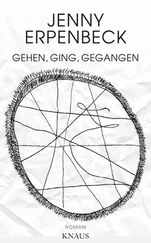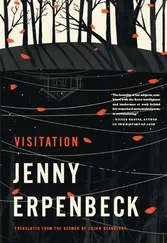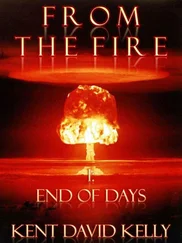Jenny Erpenbeck - The End of Days
Здесь есть возможность читать онлайн «Jenny Erpenbeck - The End of Days» весь текст электронной книги совершенно бесплатно (целиком полную версию без сокращений). В некоторых случаях можно слушать аудио, скачать через торрент в формате fb2 и присутствует краткое содержание. Год выпуска: 2014, Издательство: New Directions Publishing, Жанр: Современная проза, на английском языке. Описание произведения, (предисловие) а так же отзывы посетителей доступны на портале библиотеки ЛибКат.
- Название:The End of Days
- Автор:
- Издательство:New Directions Publishing
- Жанр:
- Год:2014
- ISBN:нет данных
- Рейтинг книги:4 / 5. Голосов: 1
-
Избранное:Добавить в избранное
- Отзывы:
-
Ваша оценка:
- 80
- 1
- 2
- 3
- 4
- 5
The End of Days: краткое содержание, описание и аннотация
Предлагаем к чтению аннотацию, описание, краткое содержание или предисловие (зависит от того, что написал сам автор книги «The End of Days»). Если вы не нашли необходимую информацию о книге — напишите в комментариях, мы постараемся отыскать её.
The End of Days — читать онлайн бесплатно полную книгу (весь текст) целиком
Ниже представлен текст книги, разбитый по страницам. Система сохранения места последней прочитанной страницы, позволяет с удобством читать онлайн бесплатно книгу «The End of Days», без необходимости каждый раз заново искать на чём Вы остановились. Поставьте закладку, и сможете в любой момент перейти на страницу, на которой закончили чтение.
Интервал:
Закладка:
The head of any dialectically functional human being contains all thoughts. It’s just a question of which thought I let out. Obviously man is guilty. Yet the thought also arises that man is innocent. I cannot escape this dilemma by constantly harping on the young poet D., who is innocent. It keeps coming down to the same thing: on one hand, innocent D., and on the other a random arrest. The man is innocent, and I see that he is innocent, I try to help prove his innocence, and then he is arrested, and this means that the arrest was random. But since an arrest is never random, it is therefore proven that the man is not innocent. Therefore I am willing to concede the point to you, in a case where you are in the wrong.
On this bit of steppe, 45.61404 degrees latitude north, 70.751954 degrees longitude east, there are only three months a year without frost. In only a few weeks, the grass will lose this green tint it displays, it will turn brown, and when the wind blows one stalk against the other, it will rustle faintly. Before the first snow falls, tiny ice crystals will cover the blades, and even the little stones on the surface of the steppe will without exception be covered with hoarfrost and freeze together. Once the frost sets in, it will no longer be possible for the wind to blow the stones about.
The weekend before his arrest, her husband had gone to a meeting and, upon returning, in distinct contrast to his usual habit, had said nothing at all about what had been discussed there. It was nearly dawn when he got home, and he did not laugh away her fears, baring his teeth and flipping back his strand of hair; she had seen him this tight-lipped only once before, that time two years earlier when he had learned that his application for membership in the Communist Party of the Soviet Union had been approved, but hers had not.
Now that her husband has been taken away, she knows that when she sits here putting her life to paper, she is playing not just with her own life, but with his as well, not just with her own death, but also with his; or is she playing against death — or does all this pro and contra make no difference at all? She knows that with every word she writes or leaves unwritten she is playing with the lives of her friends, just as her friends in turn, when they are asked about her, are forced to play with hers. G., the intellectual pioneer of the Communist movement , had to the bitter end refused to sacrifice his friendship with the Trotskyist A.
I understand that Comrade H. has been living for approximately three years together with his wife, Comrade H., in Moscow. He met her before this, but three years ago is when they entered into wedlock. Did Comrade H. question other comrades with regard to his wife’s earlier life, or was she his only source of information?
My wife, Comrade H., as many of you know, has been a member of the Communist Party of Austria since 1920.
Immediately before her departure to Moscow, she had contact in Prague with the Trotskyite A.
I can’t respond to that, I was still in Berlin at the time.
We have not only the right but also the duty to speak about everything we know.
Only in his later work did A. develop Trotskyist tendencies. I can assure you that Comrade H. did not identify with him and, above all, where his assessment of the Soviet Union was concerned, she vehemently disagreed.
It seems to me her relationship with A. went beyond mere friendship. In any case, the two of them embraced when they parted on the evening in question, according to the report of Comrade Sch.
I can’t respond to that.
Answer this question: Could Trotskyite, semi-Trotskyite, or oppositional leanings be observed in her?
No, not at that time.
What does “not at that time” mean? I have to say I don’t have the impression that this testimony is completely truthful. What’s hiding behind it? Why does Comrade H. not speak freely about the case of his wife Comrade H. in this context? Why does he have to be prompted by additional questions to speak of it?
There was no question of any opposition on her part in the sense in which we use this term in the Party.
I hope that it is clear to all our comrades how crucial it is for us to spare no effort in critical situations. These criminals who have been torturing our comrades in Germany and sending us their spies must be met with wave after wave of destruction. What if scoundrels or counterrevolutionaries like A. had managed to point a gun at Comrade Stalin? Comrades, we are faced with the question: peace or war?
Would her motherly friend O. — with whom they shared a dacha summer after summer, often staying on into September — conceal or admit under interrogation that they had all expressed doubts regarding the guilt of the young poet D. after his arrest? Might the wife of the author V. (V. had been recently condemned on charges of engaging in Trotskyist activities and shot), who was now supporting herself as a seamstress and had come to her room for a fitting, really have dug around in her papers when she stepped out to the toilet? Why had R., with whom she and her husband had enjoyed so many excellent conversations about literature early in their Moscow days, been sent off to an outpost in the German Volga Republic exactly one week before her husband’s arrest? Who was responsible for cutting the final sentence of the review she had written in July for the Deutsche Zentral-Zeitung so that her critique of the book by mustached K. was transformed into its opposite? And was that good or bad fortune? She’s long since stopped getting together with the friends she used to play cards with sometimes in those first years after they arrived, and the literary working groups were dissolved two years ago. Even the assemblies of German Party members have been discontinued. Her friend C., who used to cry her eyes out in front of her all the time over her inability to have children, recently refused to so much as nod in greeting when she walked past Café Krasni Mak and saw her — the wife of H., who has been arrested — sitting at the window.
And she herself?
During the rehearsals for the last play her husband wrote before his arrest, five of the eight actors were arrested over a period of several days, after which rehearsals were canceled until further notice. Comrade Fr., the wife of one of these actors, came up to her yesterday at the café, holding the hand of Sasha, her nine-year-old son, and entreated her to take the two of them in for at least a night. I can’t, she responded. Without another word, the woman turned and went out again, holding her child by the hand. I can’t. Only a few weeks before, her husband had been folding paper airplanes for Sasha during breaks in rehearsal. It seems to her unimaginably long ago now that she learned from the poet Mayakovski: It is not enough to be eighteen years old.
In their fight against the Fascists’ despotism and contempt for human dignity, they had all risked their lives, wrestling with the death that is fascism, and many of them fell victim to it. But if the young, beautiful Soviet Union was, by contrast, Life itself (as she believes even now), then death could no longer serve as a currency here. This fmeant that if even only a single person who fought against despotism lost his life to despotism here, then his death was in vain — deeply, profoundly, in vain — and nothing that remained here deserved the name Life, even if, seen from the outside, it resembled life.
But if in the land of the future, death were still the currency with which you paid a debt you didn’t know you had — in other words if it hadn’t been possible even here to abolish the rift between human beings that goes by the names trade, commerce, and deception, if even here there were still the same accursed two sides to humanity, unbridgeable, just as in any transaction in the old world, that would mean the sale had already gone through, and all her comrades — including her and her husband — were long since betrayed and sold and now served only to bring the seller a good price: one consisting of themselves, paid not just once or twice or even three times, but ten, a hundred, perhaps even a thousand times over.
Читать дальшеИнтервал:
Закладка:
Похожие книги на «The End of Days»
Представляем Вашему вниманию похожие книги на «The End of Days» списком для выбора. Мы отобрали схожую по названию и смыслу литературу в надежде предоставить читателям больше вариантов отыскать новые, интересные, ещё непрочитанные произведения.
Обсуждение, отзывы о книге «The End of Days» и просто собственные мнения читателей. Оставьте ваши комментарии, напишите, что Вы думаете о произведении, его смысле или главных героях. Укажите что конкретно понравилось, а что нет, и почему Вы так считаете.












